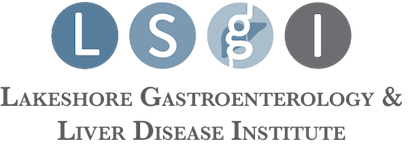Experts in Compassionate Care
Lakeshore Gastroenterology and Liver Disease Institute doctors are the experts in compassionate patient care.
For Patients With Symptoms Of Digestive Discomfort, An Upper Endoscopy Can Help Diagnose The Cause
Our doctors will use an Upper Endoscopy procedure to evaluate your upper digestive system, including the esophagus, stomach or small intestine. Our doctors use this procedure to help diagnose and treat symptoms patients have related to abdominal pain, difficulty swallowing, and other concerns.
At Lakeshore Gastroenterology and Liver Disease Institute, our physicians are experts, trained to offer prompt diagnosis and treatment of conditions of the digestive tract. We are specialists in endoscopic procedures.
WHAT IS AN UPPER ENDOSCOPY?
Our doctors will use an Upper Endoscopy procedure to evaluate your upper digestive system. An Upper Gastrointestinal (GI) Endoscopy, or simply Upper Endoscopy, will help Doctors look for the cause of symptoms like bleeding, abdominal pain, swallowing difficulty, or digestive issues.
An Upper GI Endoscopy is an exam that views the walls of your upper intestine including the esophagus, stomach, and the beginning of the small intestine. Using a flexible tube with a small camera attached, your doctor is able to take necessary biopsies (tissue samples), remove polyps (polypectomy), check for bacterial infections and look for hiatal hernias. Doctors are also able to remove foreign objects or evaluate for possible tumors. This procedure is also known as an esophagogastroduodenoscopy (EGD).
WHAT HAPPENS AFTER YOUR CONSULTATION?
After your appointment, your Doctor will discuss an individual treatment plan with you and you will receive a visit summary. In addition to the appointment notes, you may receive a medication and a test order summary.
You will be given information about what you need to know to prepare for any tests or procedures. At that time we can give you with a summary about a variety of conditions related to your circumstances.
WILL I HAVE ANESTHESIA DURING MY ENDOSCOPY?
Patients do receive medication (or a sedative) during an Upper Endoscopy to help them relax. Some medication may also given to numb the throat for your comfort and so we may insert the flexible tube and scope. Please discuss any concerns directly with your Doctor during your appointment.
HOW LONG DOES THE PROCEDURE TAKE?
An Upper Endoscopy typically takes about 30 minutes. Your doctor will review the results of the Upper Endoscopy with you.
COMMON CONDITIONS
Barrett’s esophagus
Cancers of the digestive system
Celiac disease
Diagnose esophageal ulcers and cancer
Endoscopic injection therapy
Gastroesophageal reflux disease (GERD)
Gluten sensitivity
Hiatal hernias
Helicobacter pylori infection
Precancerous conditions
Stomach or duodenal ulcers
WHAT SYMPTOMS DOES AN ENDOSCOPY HELP TO EVALUATE?
Abdominal pain
Acid Reflux
Anemia
Bleeding
Diarrhea
Gastrointestinal bleeding
Heartburn (persistent)
Inflammation or infection
Nausea or vomiting
Polyps
Swallowing difficulty or trouble
Stomach ulcers
Weight Loss
ADDITIONAL READING
For those patients who want to know more, we have linked to articles with more information..
AFTER YOUR APPOINTMENT
After your appointment you will receive a visit summary. We include everything you need to know about any tests or procedures your doctor has ordered. In addition to the notes from your visit, we can give you more reading about a variety of conditions related to your circumstances.

